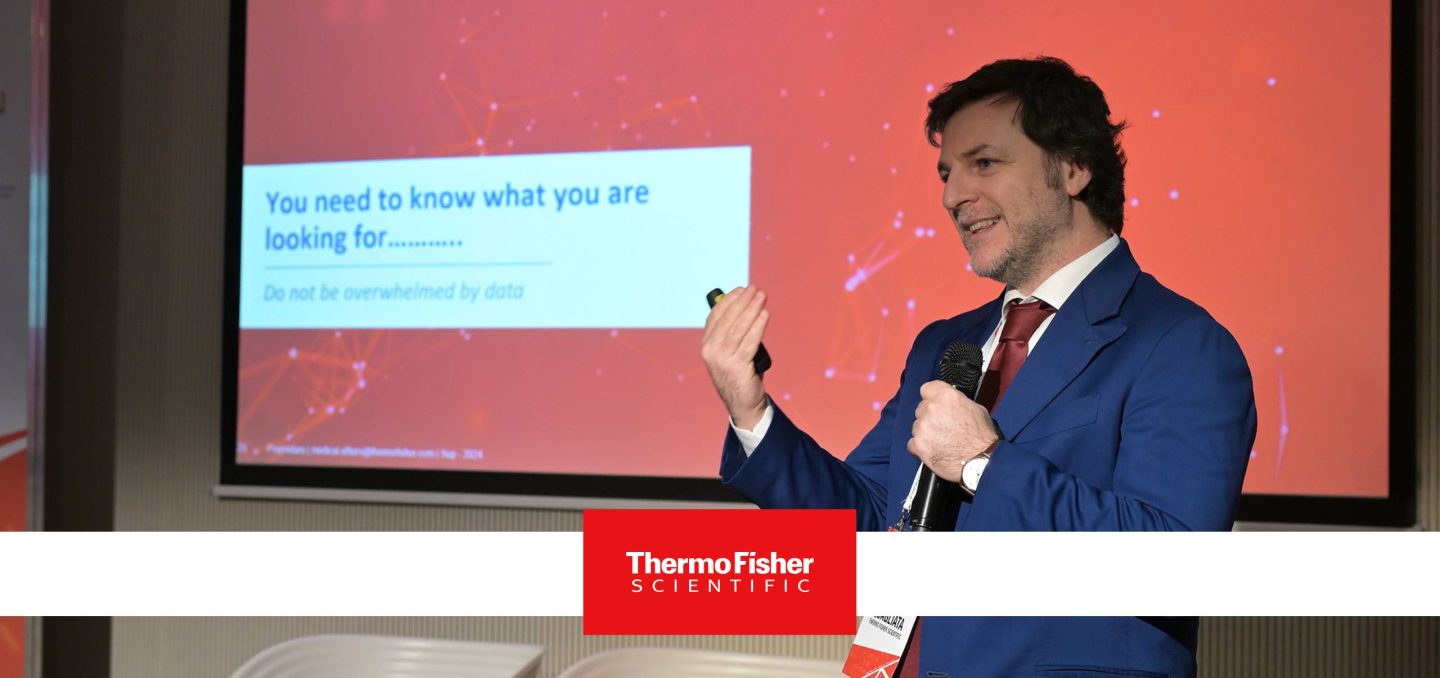At the close of Frontiers Health 2024, we had the pleasure of speaking with Luca Quagliata, VP and Global Head of Medical and Scientific Affairs from Thermo Fisher Scientific. Reflecting on the advancements in precision medicine, Quagliata highlighted a pivotal moment in the field:
Over the past decade, Next Generation Sequencing (NGS) has evolved from a tool used in translational research to a standard practice in routine diagnostics and is now recognized as the new benchmark for molecular profiling of cancer patients.
As we enter the second decade of this technological evolution, Quagliata emphasized the need for a new quantum leap. “Amid significant geographical variations in the adoption of omics technologies, the past ten years have seen an immense accumulation of data. Now, with a critical mass of information at our disposal, the focus shifts to mining key insights from this wealth of data,” he stated.
Quagliata underscored the transformative potential of digitalization in diagnostics. “The challenge lies in improving the diagnostic yield and leveraging existing data to connect more patients with the right therapies at the right time,” he explained. He also highlighted the importance of continuing to promote translational research aimed at the discovery of new biomarkers while ensuring a shift from mere data accumulation to a more focused approach to generating actionable insights.
During his session with Dr. Pierantonio Russo, EVERSANA Corporate Chief Medical Officer, Luca Quagliata shared Thermo Fisher’s commitment to ensuring equitable access to molecular diagnostics globally.
If precision medicine is something that only happens at the most advanced academic institutions, thus only benefiting a limited number of people, then we are not doing a good job in providing equitable access to optimal cancer care. To unleash the full value of precision medicine, we must make it happen at the population level and at scale. From our perspective, this starts with connecting the right patient with the right therapy at the right time, everywhere in the world.
Quagliata also provided insights into Thermo Fisher’s strategic partnerships and investments. “In the last five years, our strategy in oncology has been focused on generating clinically relevant solutions while working closely in partnership with pharmaceutical companies that are driving targeted therapy development. Diagnostics comes right before therapy decision, but if clinicians fail to properly inform that with the meaningful data, the impact of these therapies is limited at best”.
As part of their efforts to democratize next-generation sequencing on a global scale, Quagliata highlighted the company’s efforts to set up a global network of clinical laboratories. “In 2022, we had over 1,000 clinical laboratories performing routine molecular profiling of cancer patients utilizing our genomic solutions. We estimate that roughly 800,000 samples globally were sequenced with our solutions, which means there’s a vast amount of genomic data that could be utilized to dig out value”.
Addressing the issue of data silos, Quagliata emphasized the need for clear questions to extract meaningful insights from data. “Although data is considered the new “oil” due to its value, there’s an unlimited amount of data that can exist. However, if you don’t have a clear question, it’s very hard to get anything out of it”.
Quagliata concluded by stressing the importance of collaboration among stakeholders in the healthcare ecosystem: “We need to find a more successful way to connect the dots and the different stakeholders, from laboratory directors to clinicians, from payers to policymakers, and of course patients. Today, I must admit with great disappointment that this collaboration is not progressing as it should. We need to ensure that fully interexchange electronic health records turn into a reality to enable digital connections at scale”.
As we look ahead, the emphasis will be on harnessing the power of accumulated data to drive innovation and improve patient outcomes, setting the stage for the next decade in precision medicine. Quagliata’s insights at Frontiers Health 2024 confirm the critical need for continued advancements and collaboration in the field of digitally driven health.



